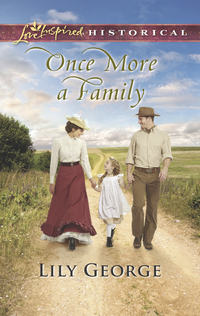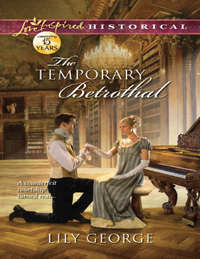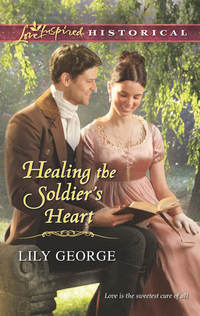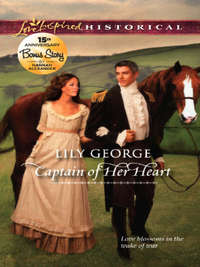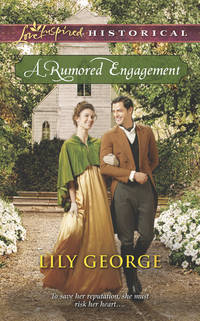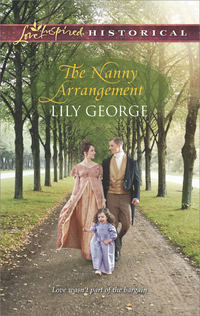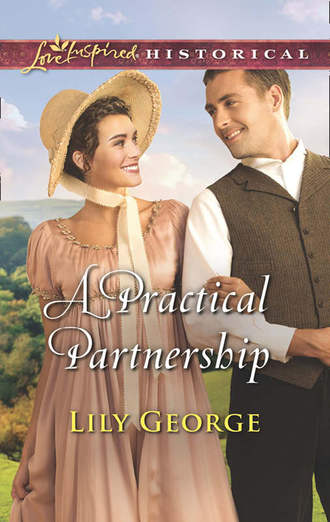
Полная версия
A Practical Partnership

Duty-Bound Bachelor
John Reed has no intention of changing his carefree lifestyle—until his father’s death forces him to return home. Now he’s in charge of the family estate and preparing his reluctant sister for her London Season. And he’s convinced millinery shop owner Nan Siddons will make his perfect partner in this task.
Nan prides herself on her independence, but with a rival stealing her clients, she needs a new means of support. So when John hires her to see his sister through her debut, she accepts. She never expected their working relationship to become something more, yet soon Nan can’t imagine her life without John in it. The bachelor has captured her heart, but can she tame his?
“You don’t have enough fun, do you?”
Color bloomed in Nan’s cheeks and her eyes sparkled with a feisty light. “I have more than enough hilarity for a woman in my situation.”
“You do not.” John spoke the words flatly, glaring out at her from under lowered lids.
She pursed her lips together as though she were biting back harsh words. He pressed his advantage. “Come, then. Stand up. Dance with me.”
She shook her head, her eyes wide. “No indeed. There’s no music, for one thing.”
“I shall hum.” He stood, holding his hand out to her.
“That would be ridiculous in the extreme.”
“But it might be fun.”
She shook her head once more. He bent down and took her hand in his.
“You are a graceful dancer, and should indulge in the pastime more often.” He began to hum a familiar tune, leading her through the figures of a country dance.
At last, she looked up at him. He must be a little winded from the dance. That was the only way to account for the sudden catch in breath he experienced when she lifted her chin and looked at him squarely.
Growing up in small-town Texas, LILY GEORGE spent her summers devouring the books in her mother’s Christian bookstore. These books, particularly ones by Grace Livingston Hill, inspired her to write her own stories. She sold her first book to Love Inspired in 2011 and enjoys writing clean romances that can be shared across generations. Lily lives in northwest Texas, where she’s restoring a 1920s farmhouse with her husband and daughter.
A Practical Partnership
Lily George

For God hath not given us the spirit of fear; but of power, and of love, and of a sound mind.
—2 Timothy 1:7

For Zach, with whom I always wanted to elope.
Contents
Cover
Back Cover Text
Introduction
About the Author
Title Page
Bible Verse
Dedication
Chapter One
Chapter Two
Chapter Three
Chapter Four
Chapter Five
Chapter Six
Chapter Seven
Chapter Eight
Chapter Nine
Chapter Ten
Chapter Eleven
Chapter Twelve
Chapter Thirteen
Chapter Fourteen
Chapter Fifteen
Chapter Sixteen
Chapter Seventeen
Chapter Eighteen
Chapter Nineteen
Chapter Twenty
Chapter Twenty-One
Chapter Twenty-Two
Chapter Twenty-Three
Epilogue
Dear Reader
Extract
Copyright
Chapter One
Tansley Village, Derbyshire
March 1819
Hannah Siddons, commonly referred to by the practical and prosaic nickname of Nan, entered the village shop and tugged her bonnet lower on her forehead. Through all of her eighteen years, she had blended into the background, eclipsed by her lovely and tempestuous older sisters. Now, more than ever, she needed to become one with the shadows. Her very career depended on it, in fact.
She rounded the corner, neatly stepping past a display of brooms, and halted, drawing breath slowly. Her heart thundered in her ears. She glanced over at the counter, but the shopkeeper was engaged with a customer, rolling out a bolt of cloth. Nan nodded. That’s right. Stay busy, old fellow. She ducked around a few barrels of flour and paused again, taking in the tableau before her.
Yes, the rumors were true.
A girl, gaily dressed and sporting an elaborate coiffure, sat at a low table. Her nimble fingers flew back and forth as she stitched lace onto the brim of a neat straw bonnet. Her lips were pursed with concentration, creased on either side by a charming dimple. She didn’t utter a sound, but if she had, it would probably be marked by a lilting accent.
The general store had engaged a French milliner, and that’s why Nan’s millinery shop had seen fewer and fewer customers over the past week.
Protectively, Nan touched the rough brim of her own bonnet. That straw the girl was using wouldn’t last a week in Tansley Village, subject as they were to sudden winds blowing up from the moor. Nan’s bonnets were designed with practicality in mind, for she had long since made a study of Tansley’s particular weather patterns. What use was a bonnet if it fell to pieces after the first summer storm, or a capricious breeze blowing across the fields? She had built the family business after her sisters had left it behind, by catering to the women of the village and offering them sturdy bonnets that would last season after season.
That was what the women of Tansley wanted. They wanted to spend their hard-earned money on bonnets and hats that were durable. Or at least that’s what Nan assumed. There’d never been a reason to doubt her assertion—until now.
She was staring, and the French girl would surely see her if she continued staring. She shrank back against the wall, bumping the small of her back into the window ledge. She could either brazen her way out by purchasing something, or she could slink away, hoping never to be seen. Judging by the lightness of her purse, thanks in no small part to this upstart milliner, it would be much better to slink out and save her money.
As Nan prepared to make her stealthy flight, two voices coming from the slightly opened window caught her ear.
“Please don’t make me go in there, John. I feel such a fool. Surely the bonnets I have are pretty enough.”
“Jane, we’ve discussed this at length. You know as well as I do that you simply must begin dressing yourself as a proper young lady should.”
Nan pivoted slowly on one heel and glanced out the window. A tall man, powerfully built, was leaning over a slight young woman, who was dressed in a simple gown. With the expertise born of years of practice, Nan summed up the pair based solely on what they were wearing. The young man was dressed as any gentleman should be in the country, but the cut of his tweed coat was particularly fine and spoke to a London tailor’s hand. The young lady, though dressed in a plain black gown and wool shawl, gave the air of one who didn’t particularly enjoy dressing up, but did what one had to for one’s station. She looked to be about Nan’s own age.
The pair stood side by side, not close as a husband and wife should be. Perhaps they were relatives?
Whatever their relationship, they certainly had money, and they were going to spend it here, rather than at her shop.
Could she allow one more paying customer to get away?
As swiftly as she dared, Nan made her way around the perimeter of the shop and darted out the door. She sprinted down the steps and around the corner of the building, skidding to a halt before the young man and his reluctant companion.
“Pardon my intrusion, but I couldn’t help but overhear your quandary. If I might speak so boldly, I don’t think you should go into this shop if you require a really good bonnet,” she panted. Oh, if only she hadn’t run. Now her breath came in short gasps, making it difficult to speak properly. “If you should come to my millinery shop, I can assure you the bonnet will be of the finest quality.” She paused as both the young man and woman looked at her curiously. She had never before in her life run after a customer—she had never before run after anything. Her life was ordered, prosaic and, well, dull. But she couldn’t very well lose her livelihood—and with it, her independence—to some upstart French milliner. No, if she was to survive, she must be bold.
The man arched an eyebrow as his gaze carefully combed over her in silent judgment. “You own a shop, miss? Aren’t you a little young for that sort of thing?”
Nan swallowed. “I’m old enough. I own it myself. It’s called—”
“But John, I—I don’t really care for shopping, or for bonnets,” the young lady admitted, cutting Nan off. Her face turned a deep shade of red as though she’d admitted something truly terrible.
Nan’s heart sank. The fear of losing this potential customer was too real. “I understand,” Nan replied swiftly. Part of her job as a milliner was to determine what her customer wanted, before the customer knew it herself. “I hate all the fuss of shopping, as well. But my shop is quite small and cozy. I live above it, as a matter of fact. If you’d like to come by, we could have tea. Perhaps, if you would like to tell me exactly what you are looking for, I could put together a hat that would do you justice.”
A spark lit Jane’s blue eyes. “Truly? Would you listen to my suggestions?”
“Indeed, I would.”
The girl nodded slowly. “That could be enjoyable.”
Beside her, the young man spoke again. “Why do you think your bonnets would be better than this place?” He motioned his hand toward the building.
“You see, sir, the lady inside uses straw that’s far too fine. I fear that in a strong windstorm, the bonnet would break apart easily. My bonnets are much more suitable for all kinds of weather.”
With her frantic heart pounding hard against her ribs, she waited for the man to reply. He studied her for a few, earth-trembling moments. It was difficult indeed to maintain her composure while being scrutinized so closely, particularly by a man as good-looking as he. His dark brown eyes swept over her, as though committing her to memory. When her panic began to simmer just below the surface, he squared his jaw and the critical expression eased from his handsome face.
“Is it far?” he asked.
Relief washed over her and she tried not to breathe a noticeable sigh. “Not at all.” Nan waved over at the squat little building on the very edge of the string of village shops. “Just a healthy walk.”
The young man’s eyes widened. “Healthy? Are you certain?”
Before Nan could answer, the man burst into laughter, and Nan’s cheeks reddened. Was he mocking her?
“John, enough,” Jane rasped, digging her elbow into his side. Then she turned to Nan. “Please ignore my brother. He is a notorious clown.”
He shrugged, ducking his head boyishly. “The way she said it—I don’t know. It was amusing.” He shot Nan an impish look, his brown eyes twinkling with glee. “Can we take our healthy walk now? I must say, Jane, I’ve spent more time trying to convince you to purchase a silly bonnet than I ever spent on a girl I fancied.”
Jane rolled her eyes at Nan.
Nan straightened her spine. Was that a gibe toward her?
She’d grown up the youngest in an affectionate and warm family of women, employed in a job that catered to ladies. Men were something completely out of the ordinary to her. She didn’t understand them, and more to the point, she had no particular use for them. None of the men in the village found her worth a second glance, and she’d grown secure in the knowledge that her little shop would keep her in comfortable spinsterhood.
It didn’t matter if she thought he had a nice smile—now that he finally showed it to her—she had absolutely no retort for this John fellow, and it was better to go along as a meek and mild shopkeeper and gain his sister’s business, rather than lose out thanks to a tart reply.
Perhaps the healthy walk would quell him into silence. One could hope, at any rate.
* * *
John Reed followed a few steps behind his sister and this extraordinary young woman who’d coerced them both into visiting her shop. She was just as small as Jane, who barely reached his shoulder, but there was something prepossessing about her all the same. She had a straightforward way of looking at a man, and though her words were gentle enough, the fire in her blue eyes spoke of a vivacious spirit.
She wasn’t as conventionally pretty as the women he generally escorted about. No, in London he showed a marked preference for willowy blondes. But there was something about this one, something of the spitfire that he rather enjoyed.
She had also managed to convince Jane to at least look at a more fashionable style—although, judging from that rough country bonnet she wore, she was no arbiter of taste and refinement. For Jane’s London debut, they would almost certainly need to return to London and order clothes and hats from a proper dressmaker upon their arrival. But first, small steps.
Jane was as reluctant about her debut as he was about his new role as the head of his family. No, reluctant wasn’t a strong enough word. He hated his new role, but he was resigned to it. If he refused to accept this mantle, Grant Park would go to wrack and ruin. He must force Jane to accept the reality that she must find a good match, just as he had to find the strength to be master of his family’s estate. This afternoon excursion could at least introduce Jane to the possibility of better attire, and for that, he would be forever grateful to this forthright milliner.
As they neared the shop, John squinted to read the sign leaning up against the wall. Siddons Sisters Millinery Shop.
Siddons.
There was surely but one Siddons family in Tansley Village—and he and Jane were visiting one of them now. After Father died, John had no idea what he had to do, and frankly, he hated trying to figure it out alone. There was no one to turn to but Paul Holmes, an old friend, for advice on getting his affairs in order and for taking over the proper management of a vast estate. Paul had welcomed the Reeds to Kellridge Hall in Tansley. John and Jane had been enjoying the hospitality of Paul and his wife, Becky Holmes née Siddons, for the past two days.
“I say—” he began, but the young woman ignored him, opening the door to her shop with a flourish.
“Please come in,” the woman said, ushering them both inside. She removed her bonnet, displaying a coronet of tightly wound chestnut braids. Funny, it was not a fashionable style in the least, for women of his acquaintance preferred Grecian styles, or long, tumbling ringlets. Yet despite its severity, it suited her rather well.
Jane stepped in hesitantly. “It is rather more like a home than a shop.”
The milliner drew a chair before the hearth and stirred the fire. “I’ll have tea ready in just a moment,” she called as she bustled about, retrieving the tea things from a nearby cabinet.
John watched her flying around, and once again, that mischievous urge tugged at him. “I’d rather like a chair, too, if you don’t mind.”
Jane shot him one of her I-shall-throttle-you-if-you-don’t-behave looks, for his mild-mannered sister loathed his jesting nature. He thought he would be able to get away with his outrageous behavior, since Jane had not chided him earlier for goading the milliner, even though he’d been teasing her since she first walked up and started talking to them. He returned her look with his I-shall-force-you-to-a-London-soiree eyebrow raise, for his sister’s weak point would always be her hatred of all social events and functions. Jane’s cheeks reddened and she shifted her gaze to the fire.
“Oh, of course,” the milliner replied. Though she trotted over obediently enough, he caught the sarcastic curl of her lips. She was playing at being polite although he could see it wasn’t exactly aimed toward him. That knowledge ignited the spark of jest within him.
“Thank you.” He sank into the chair she drew up and crossed his legs with the practiced elegance of a dandy. “I prefer sugar with mine. And a biscuit.”
She nodded, biting her lip as though biting back an acerbic insult or two, and he was hard-pressed not to laugh. She was jolly fun, whoever this Siddons girl was. Being in her company could almost make him forget that the weight of the world—or at least, the weight of his family’s good name—now rested on his shoulders.
“Pay my brother no mind,” Jane spoke softly to the milliner. “As I said before, he loves to tease. And he’ll be happy with any kind of tea you have. I know. His tea appetite is simply appalling. Father used to say he would eat us out of house and home.”
The milliner shot Jane a grateful look, and her small smile tugged at his conscience. He didn’t mean to hurt her feelings. As she swished past him to retrieve the tea things, he tried to give her a wink, but she was looking in the other direction.
“You have the advantage of us, miss,” he observed, taking off his gloves and holding his hands to the fire. “You at least have heard my sister and I bickering enough to know our given names. But we know nothing of you, other than that you are a rather direct shop owner. Are you a Siddons, then?”
“I am Nan Siddons,” she replied, graciously enough, as she set the tea table before them.
Nan. He’d vaguely heard Nan mentioned in passing around Kellridge. Always her name, it seemed, was coupled with work.
“I am Jane Reed, and this is my brother, John.” Jane stepped in gracefully, taking over the flow of conversation as she assisted Nan with serving the tea.
John watched his sister, working with Nan so easily, talking to her as though they were old friends. Jane had never responded this effortlessly to strangers before. Jane was as quiet as a church mouse, bookish and given to playing endlessly on her violin. Her impending debut—once they were out of mourning, of course—was the cause of much consternation in their home. Yet here, in the comfort of the Siddons Sisters Millinery Shop, she was holding her own quite well.
He accepted his teacup from Nan with a nod of thanks. This sudden change in his sister’s demeanor gave him pause. Perhaps Nan was the right person for this job after all. Not just for one bonnet, but for every agonizing step in preparing his sister for her London debut. Her calming nature, along with her candid manner, made her quite a good candidate as his partner in this venture thus far.
Much as he turned to his friend Paul Holmes for assistance in wrestling with his father’s vast estate, could he turn to Nan Siddons for assistance in transforming his shy, reluctant sister into a diamond of the first water?
He eyed her over the rim of his teacup. The color in her cheeks rose, and she twitched in her chair, moving so that he could only see her in profile.
“Let us discuss the matter of your bonnets,” she said to Jane in a brisk tone. “What, do you feel, is lacking in the bonnet you have now?”
“Nothing, really.” Jane cast a reproachful look at John. “My brother feels I should be more fashionably dressed. I don’t feel it’s right, since I am in mourning.”
“You dressed plainly before Father died,” John scoffed. This was a familiar, and tender, point of contention between them. “When our mourning period ends and you go to London for your debut, you simply must dress as a young lady of your station should. No more unadorned gowns and simple hats. If I have to rise to the occasion, taking over as man of the family, so should you rise to the occasion of being a typical well-bred young lady.”
“Whether it’s fair or not, people judge a woman by what she wears,” Nan put in quietly. “Here, in Tansley, a young lady can dress in basic, practical attire. In fact, my shop caters to the women of the village. My hats and bonnets are sturdy, rather than elegant, because I want them to last a long time. But in London, you will be compared to other young women, and if you look shabby, it could reflect badly on your family.”
“It would reflect badly on me as head of the family,” John added pointedly. Nan understood his position, even if his sister did not, and for that he was ridiculously grateful.
“So the intent of dressing you well, or at least to a certain outside standard, would have two purposes. First, and most important, to make you feel more comfortable in your role as debutante.” Nan took a sip of her tea. “Second, to assure your place in society as you try to find a husband.”
Jane made a tiny groaning sound. John sighed. This was further than he’d ever been able to get. Normally by now, Jane would’ve fled. A tiny ray of hope shone into his soul. Nan Siddons could help him. Perhaps, if he could convince her to come, this one aspect of his new role would be a success. He might be a scoundrel, and he flirted with atheism, but all the same, he could do well at one thing in his life. It would be good not to be a bitter disgrace to his parents’ memories.
But could Nan produce the kind of fashionable clothes that a London debut would require? He studied her once more. She was neat and something in her demeanor was attractive enough, but she would never be called stylish. He looked around the room, peering at the bonnets in various stages of creation. These were, as she indicated, sturdy and practical. Not at all suitable for, say, a ride along Rotten Row.
“I don’t mean to be impertinent,” he began, and both Nan and Jane shot him disbelieving glares. “But how can we be certain that you can create a fashionable bonnet?”
Nan squared her jaw and set her teacup down with a defiant clink. “Let me show you my sketches.”
She leaped gracefully from her chair and bustled over to a wicker basket, pulling out sheet after sheet of foolscap. “My sisters and I started our business making bonnets and hats to order for The Honorable Miss Elizabeth Glaspell and her friends.” She held out a sheaf of papers, and he accepted them. “These are my sketches. I worked with the gowns Miss Glaspell already owned, creating bespoke bonnets that matched perfectly, as though they had been crafted at the same time.”
John nodded slowly, perusing the sketches. As he finished looking at each sheet of paper, he handed it over to his sister. Assessing her work from the male perspective, the hats and bonnets looked stylish enough. The women of his acquaintance would not be ashamed to be seen in them. Judging by Jane’s smile, she was satisfied with Miss Siddons’s skill, as well.
Jane’s smile was the first real sign that his sister was beginning to thaw a trifle when it came to choosing any garment that might show her off on the Marriage Mart. Jane was slow to accept change, however. If he insisted on more than just a single bonnet today, she would likely dig in her heels and vow to stay at their country home as a spinster forever.
“Very well,” he began, casting the rest of the sketches aside. “You may make one bonnet for my sister. Something to go with the gown she has on. If that works well, we may have other commissions for you. But I want to see your handiwork first. After all, these are mere sketches. I’d like to see the finished, fashionable result.” What he proposed was true, after all, and if he made it sound as if he was unsure of Miss Siddons’s talent, Jane might well jump to her defense.
“I’ll create a sketch this evening,” Miss Siddons replied with a snap, two red spots appearing on her cheeks. “I think Miss Reed’s dress is perfectly suited to mourning, and I shall look forward to creating something to bring out her natural beauty.”


